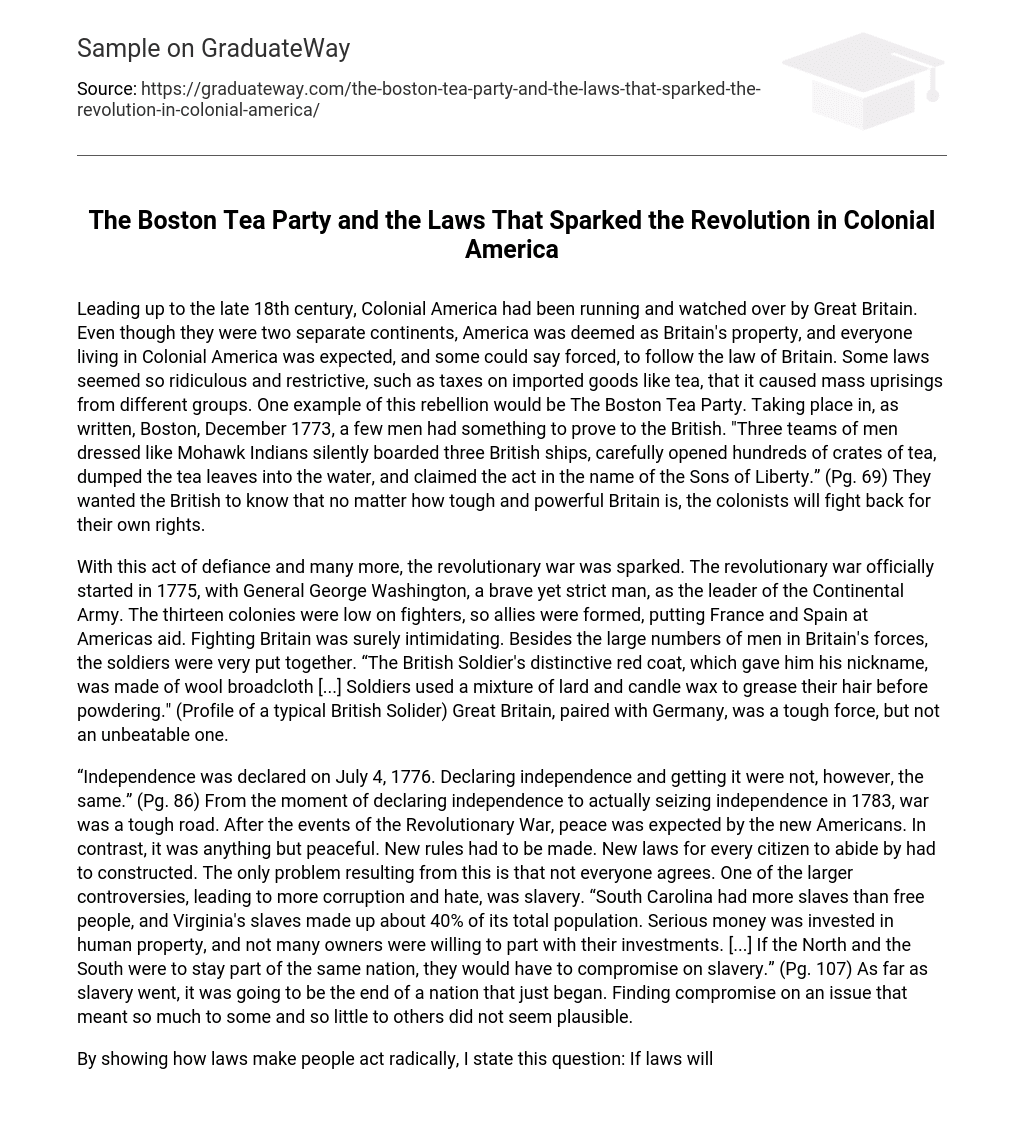Leading up to the late 18th century, Colonial America had been running and watched over by Great Britain. Even though they were two separate continents, America was deemed as Britain’s property, and everyone living in Colonial America was expected, and some could say forced, to follow the law of Britain. Some laws seemed so ridiculous and restrictive, such as taxes on imported goods like tea, that it caused mass uprisings from different groups. One example of this rebellion would be The Boston Tea Party. Taking place in, as written, Boston, December 1773, a few men had something to prove to the British. “Three teams of men dressed like Mohawk Indians silently boarded three British ships, carefully opened hundreds of crates of tea, dumped the tea leaves into the water, and claimed the act in the name of the Sons of Liberty.” (Pg. 69) They wanted the British to know that no matter how tough and powerful Britain is, the colonists will fight back for their own rights.
With this act of defiance and many more, the revolutionary war was sparked. The revolutionary war officially started in 1775, with General George Washington, a brave yet strict man, as the leader of the Continental Army. The thirteen colonies were low on fighters, so allies were formed, putting France and Spain at Americas aid. Fighting Britain was surely intimidating. Besides the large numbers of men in Britain’s forces, the soldiers were very put together. “The British Soldier’s distinctive red coat, which gave him his nickname, was made of wool broadcloth […] Soldiers used a mixture of lard and candle wax to grease their hair before powdering.” (Profile of a typical British Solider) Great Britain, paired with Germany, was a tough force, but not an unbeatable one.
“Independence was declared on July 4, 1776. Declaring independence and getting it were not, however, the same.” (Pg. 86) From the moment of declaring independence to actually seizing independence in 1783, war was a tough road. After the events of the Revolutionary War, peace was expected by the new Americans. In contrast, it was anything but peaceful. New rules had to be made. New laws for every citizen to abide by had to constructed. The only problem resulting from this is that not everyone agrees. One of the larger controversies, leading to more corruption and hate, was slavery. “South Carolina had more slaves than free people, and Virginia’s slaves made up about 40% of its total population. Serious money was invested in human property, and not many owners were willing to part with their investments. […] If the North and the South were to stay part of the same nation, they would have to compromise on slavery.” (Pg. 107) As far as slavery went, it was going to be the end of a nation that just began. Finding compromise on an issue that meant so much to some and so little to others did not seem plausible.
By showing how laws make people act radically, I state this question: If laws will create disruptive behavior, why keep them? If rules make the same amount of chaos that would occur without them, then why force everyone to follow them?





